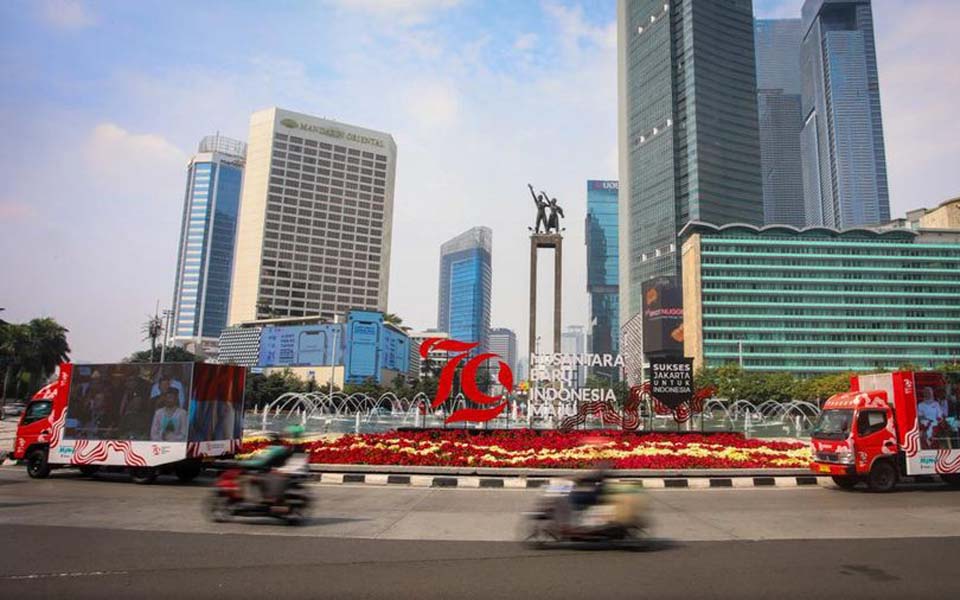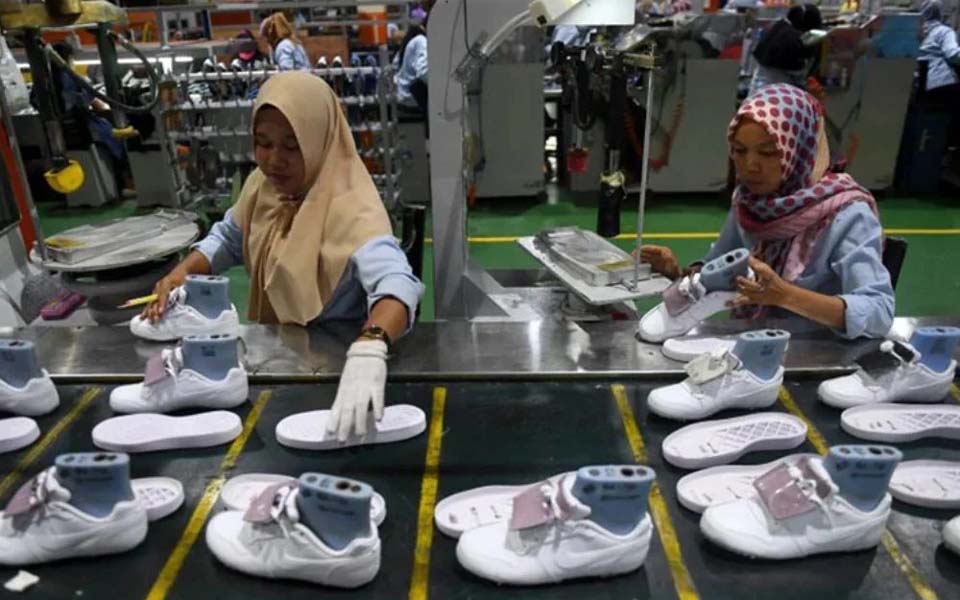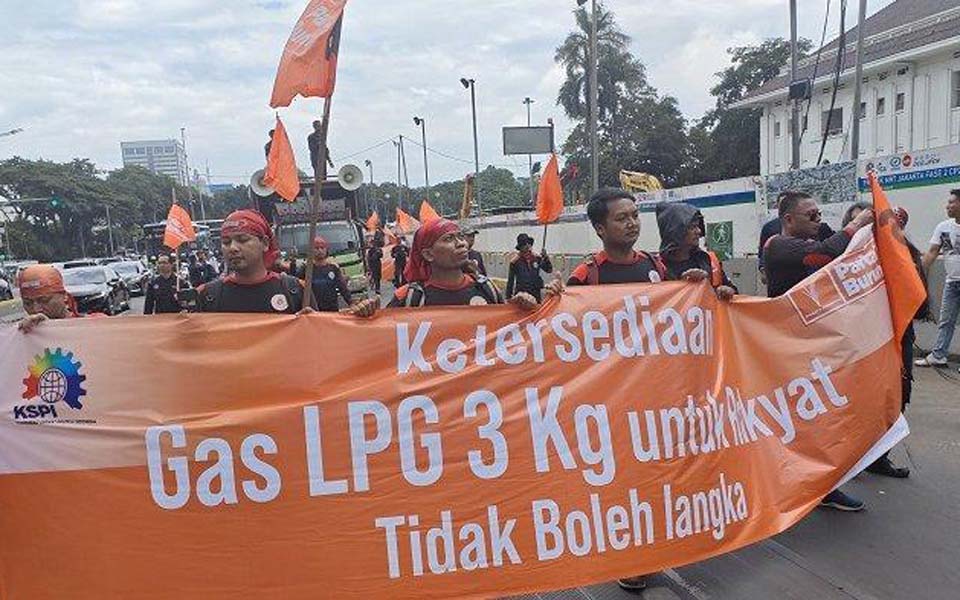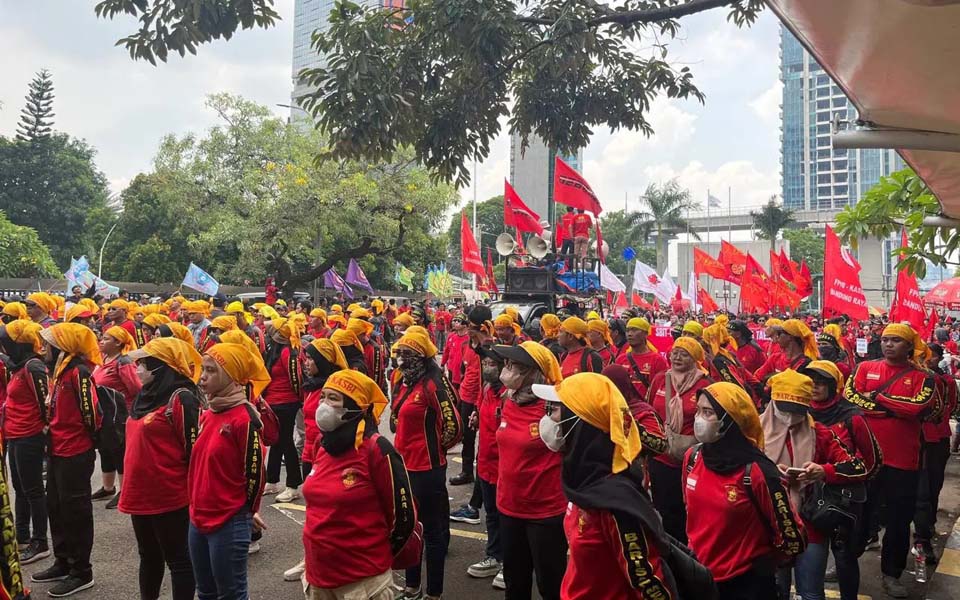Nieke Indrietta/Dianing Sari, Jakarta – Workers employed in four industrial sectors are still threatened with mass dismissals this year as a result of the global financial crisis, namely the timber, electronic, garment and footwear industries.
This was disclosed by Labour and Transmigration Minister Erman Suparno in Jakarta on Tuesday January 6. “The manufacturing sector will still be under threat this year”, he said.
In attempting to address the situation, Suparno said his department has already allocated funds of as much as 369 billion rupiah from this year’s state budge to focus on programs to overcome the impact of the global economic crisis, such as preventing dismissals. This will include labour training centers, entrepreneurship training and a redistribution of labour.
Based on Department of Labour and Transmigration data for January 5, 2009, as a consequence of the crisis the total number of employees threatened with dismissal is as high as 24,452 workers across all the provinces in Indonesia. The number of dismissals has risen based on data for December 31, 2008, when it stood at 23,752 workers. The majority of employees threatened with dismissal come from the timber, electronic, garment and footwear industries.
Meanwhile the number of employees that companies are planning to dismiss as per January 5, 2009 is as many as 25,577 people. This total has not changed from the previous data as per December 31, 2008. “We will be prioritising those [companies] planning dismissals during bipartite negotiations through the Joint Ministerial Decree1“, said Suparno.
Mediation efforts at preventing dismissals through re-negotiating the minimum wage will also involve business associations such as the Indonesian Textile Association, the Indonesian Retailers Association and the Indonesian Footwear Association.
As a result, efforts at seeking a resolution will be cross-sectoral and include other departments such as the Department of Industry. The Department of Industry will be making serious efforts to stimulate the economy and provide incentives while the Department of Labour and Transmigration will focus on labour affairs.
In spite of the crisis, Suparno promised that the absorption target for new people entering the work force would remain at around 2.6 million people. Out of this total, 2 million will be absorbed domestically, while the remainder of around 600,000 to 750,000 will be sent overseas as migrant workers.
[It has been reported that] a number of countries such as Malaysia, the Middle East, Japan, Hong Kong and South Korea are already begun repatriating Indonesian migrant workers due to the crisis. Suparno however refuted this. “Not all of them [are being repatriated] because of the crisis. Some are for regular reasons such as contracts that have expired or those taking leave”, he explained2. In the case of Hong Kong for example, those returning home were for regular reasons.
According to Suparno, the government is communicating with the countries concerned and in the case of the Middle East it has stated that it will not be reducing the number of migrant workers because it still needs the labour.
The result of discussions with the Malaysian government, said Suparno, indicate that the plantation sector still need labour, although the construction and electronic sectors remain vulnerable to the financial crisis.
Suparno added that Japan requires some 1,000 people and the government dispatched around 200 migrant workers last year. The remainder will be sent in stages. South Korea meanwhile needs 1,900 workers and around 30,000 Indonesian migrant workers still remain in the country.
Notes:
1. The Joint Ministerial Decree (SKB-4) signed by Labour and Transmigration Minister Erman Suparno, Trade Minister Mari Elka Pangestu, Industry Minister Fahmi Idris and Home Minister Mardiyanto on October 24, limits laborers’ wage from exceeding the rate of economic growth and is expected to discourage local administrations from raising regional minimum wages beyond the capabilities of manufacturing firms.
2. On December 17 Suparno told the Jakarta Post that some 250,000 mostly semi-skilled migrant workers had already been repatriated and that they had had to leave for home early before their contracts expired as their employers were hit by the financial crisis. “The cause is obviously the global economic downturn. Employers are facing financial problems due to sluggish demand,” Erman told the Post, adding the employing countries included Malaysia, South Korea, Hong Kong and Middle Eastern countries.
[Translated by James Balowski.]















